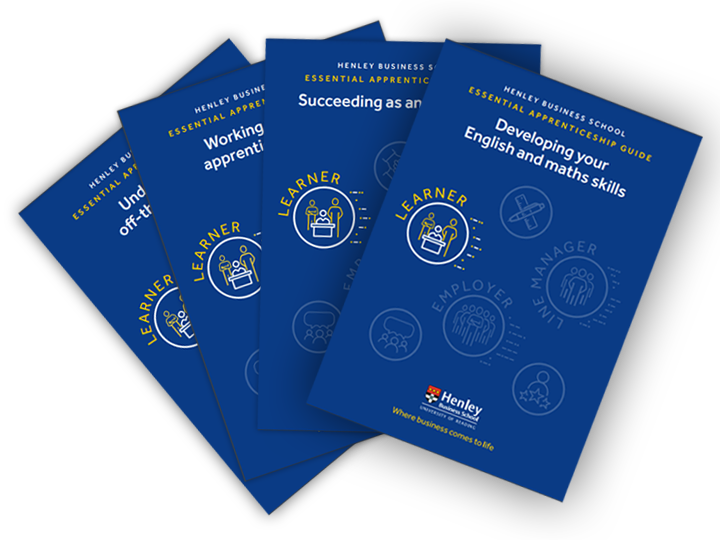Being a successful apprentice
An apprenticeship can be a career-defining experience, but one that requires hard work and commitment. Here are our top tips on how to be a successful apprentice.

Committing to your apprenticeship
Completing your higher or degree-level apprenticeship is a journey of growth and self-discovery. However, you should also be aware that our programmes involve a significant time commitment.
Apprenticeships can be challenging when completed on top of your job. To be a successful apprentice, you should manage your commitments in a systematic way. This involves being realistic and self-disciplined when balancing responsibilities relating to work, studying and home.
“I would suggest if you’re going to start [an apprenticeship] you’ve got the support both from your employer and your team, and above all your loved ones. But I have realised if you go into this journey with curiosity, open-mindedness and the willingness to adopt a growth mindset, then this will truly be a transformative experience for you.”Dr Deepak Ravindran, Chartered Manager Degree Apprenticeship | BA (Hons) Applied Management
Top tips for succeeding as an apprentice
To get the most from your apprenticeship, we recommend that you follow our tips. This will help you manage your responsibilities effectively.
- Be clear about what you want to gain personally and professionally from your apprenticeship.
- Make sure your line manager understands the requirements of your apprenticeship.
- Check that you understand each component of your apprenticeship and how it will be assessed.
- Ask for help when you need it! You can access support from our faculty as well as your line manager.
- Keep on top of your workload from the start. Set weekly goals and note key deadlines and review meetings in your diary.
- Stay focused on how you can apply your learning in the workplace.
- Make the most of your meetings with your apprenticeship tutor - they are there to support you throughout the programme.
“I had not anticipated the additional workload the apprenticeship adds – however, I see this as a positive opportunity to ensure that skills are developed in a practical way. I wish I had been more organised from the start! My recommendation to others is to get into a habitual cycle of allocating study time to ensure that you manage your work/life balance.”Kathryn Millicent, Senior Leader Masters Degree Apprenticeship, MA Leadership
Further information
To find out more about how learners are supported through their programme, see our Support for apprentices page.

Essential Apprenticeship Guides
To learn more about becoming an apprentice and what to expect, see our Essential Apprenticeship Guides.
• Succeeding as an apprentice
• Working with your apprenticeship tutor
• Understanding off-the-job training
• Developing your English and maths skills